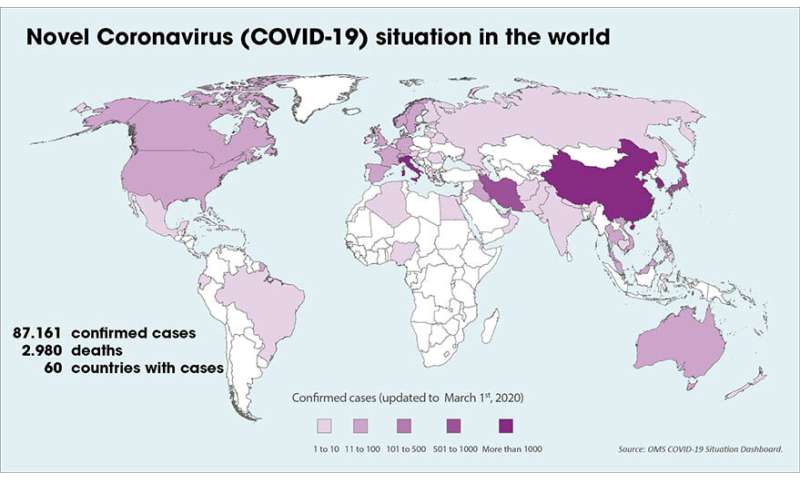Coronavirus mutations 'no cause for alarm'

Mutations discovered in the first Brazilian case of coronavirus are no cause for alarm, a leading virologist says, as the virus seems to be remaining stable enough for a single vaccine to work.
06 mar 2020--"Nothing has occurred that is major and this virus appears to be stable," David Heymann, professor of infectious disease epidemiology at London School of Hygiene and Tropical Medicine, tells SciDev.Net.
"Small mutations are normal, especially with RNA [Ribonucleic acid] viruses."
In under 48 hours, genetic analysis was performed on a sample from a 61-year-old man from São Paulo, who returned from Italy with a confirmed diagnosis of severe acute respiratory syndrome coronavirus type 2 (SARS-CoV-2).
According to the researchers, this is the first complete genome analysis of the virus found in Lombardy, the heart of Italy's coronavirus outbreak.
Preliminary genetic analysis indicated the genome differs by three mutations from the original Wuhan reference strain.
Despite the mutations, a vaccine would likely be effective for multiple strains of COVID-19, Heymann says.
When developing a vaccine, "we look for the parts of the virus that are most sustained," Heymann explained.
Scientists are still learning about the virus, but it is evolving in a way that the strains can be traced back to the initial patient in China's Hubei province, he says.
A report on the data from Brazil was published Friday by virological.org, a forum for the analysis and interpretation of virus molecular evolution and epidemiology.
"Continued monitoring of new suspected cases will be critical to monitor new virus importations in Brazil and also to identify initial clusters of local transmission in the country," the researchers said.
The virus genome was sequenced at the Adolfo Lutz Institute under the scope of the Brazil-UK Centre for Arbovirus Discovery, Diagnosis, Genomics and Epidemiology (CADDE).
"We live in a global world where sharing information and knowledge during epidemic outbreaks, especially in public health emergencies, is crucial for us to have answers for the rapid control of these outbreaks," said Nuno Rodrigues Faria, from the University of Oxford, who is a coordinator of CADDE and co-author of the report on the Lombardy genome.
"We need good resources to allow dialogue, collaborations and information exchange, because only by working together can we find faster solutions to public health problems."
Ana Tereza Vasconcelos, from Rio de Janeiro's National Laboratory of Scientific Computing, who did not participate in the study, told SciDev.Net the quick response after diagnosis "shows that we [in Brazil] have the ability to act in real time and face various epidemics."
Vasconcelos says that in addition to helping scientists understand how the virus is spreading throughout the world, genome sequencing is vital for the development of diagnostic tests and vaccines.
More information: Report on data from Brazil: virological.org/t/first-cases- … s-3rd-march-2020/409
Provided by SciDev.Net
No comments:
Post a Comment